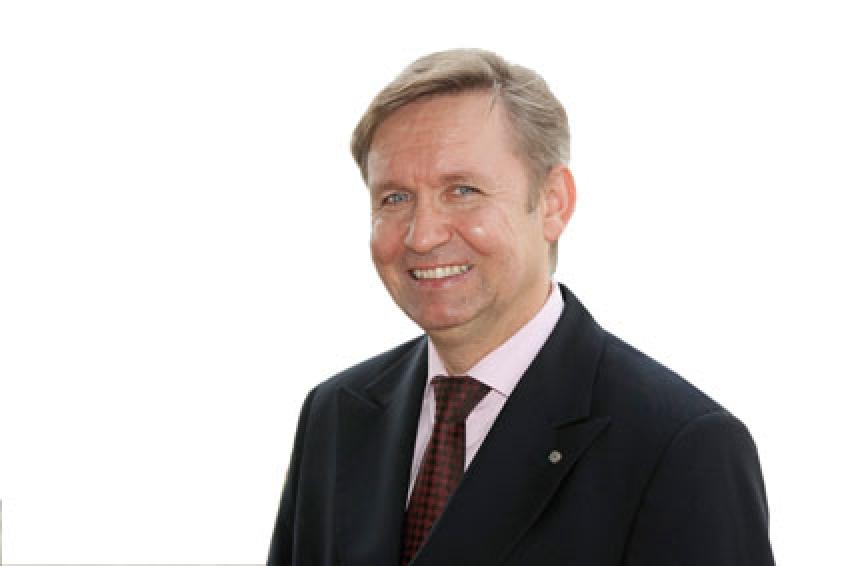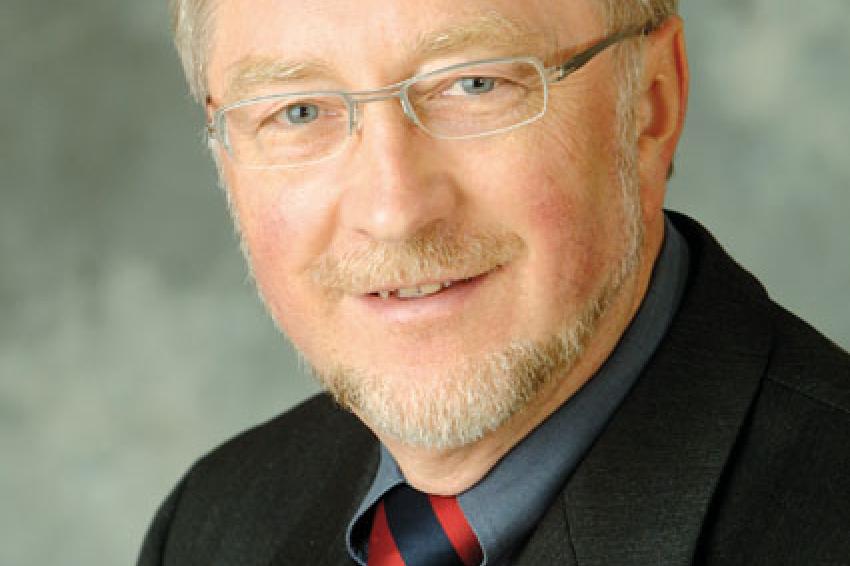Expect High Performance
API Manufacturers Face Many Hurdles in Business
Active pharmaceutical ingredients (APIs) are something that anyone who has ever had a headache has come into contact with. These days, the worldwide market for APIs is being influenced by changes within the pharma industry, including more demand for patent-free drugs and an increasingly complex regulatory environment. Manufacturers from the East are also putting pressure on Western player. CHEManager Europe asked some of this year's CPhI exhibitors the following questions:
- What do you consider to be the biggest trends in APIs and intermediates right now?
- What role do generic APIs play for your business, if any?
- What is your strategy for competing with API manufacturers from the East?
- How do you see the growing interest in biopharmaceuticals? Does your company have any plans in this direction?
Trends:
A. Dietrich (Boehringer Ingelheim): The pharmaceutical industry has seen a number of changes in market trends over the past years. Mainly an increased pressure on profitability due to local healthcare cost reduction measures and, consequently, the balancing trend of outsourcing manufacturing and production process improvements through process excellence initiatives to lower cost in response.
Within these macro trends, we currently see several factors influencing the field of APIs and intermediates. Firstly, manufacturing overcapacity puts pressure on pricing during a time of rising cost and regulatory complexity. We believe that overcapacity is caused by a number of issues. New producers entered the market in particular in Asia. Ongoing major pharma restructuring and divestiture activities seldom eliminate production capacity. The existing assets are often sold to new owners who are trying to keep capacity utilization high to manage operating cost effectively. In addition, the long-term trend for new product approvals remains currently softer than intended. Hence, less capacity for new products is needed. In summary, capacity supply outstrips capacity demand and respective market prices fall.
Secondly, the need for a dual- or multiregional production site strategy remains important. This movement is driven by a number of concerns, including geopolitical aspects that make companies consider hedging their supply chain security. In particular, a sole dependence on an exclusive Asia manufacturing strategy will be carefully looked at.
Thirdly, the newer generations of APIs tend to be more potent, which creates an increased need for special manufacturing set-ups, like a containment solution for manufacturing. In addition, production processes tend to be more complex. Consequently, associated lower volumes often require smaller equipment.
Fourthly, regulatory and quality requirements will continue to grow, thereby raising the complexity and cost for a business, independent of an already existing product or a new product. The respective maintenance and upkeep requires continuous investments to ensure that analytical and quality standards are always up-to-date.
H. Sieger (CU Chemie Uetikon): The worldwide market for APIs and intermediates will be very much influenced by the changes within the pharma industry that are resulting from strong cost pressure, an increased demand of patent-free drugs and the shift from the developed to the E7 emerging markets - China, India, Brazil, Russia, Indonesia, Mexico and Turkey.
Due to the demand of cheap patent free drugs, a situation has been created, where a high percentage of APIs - which comes from non-EU sources such as India and China - do not always comply with the European Quality standards. As a consequence, an alarming increase of falsified APIs that threaten public health can be observed. A latest example is the clopidogrel case with the API produced in India and a recall of the drug from the market.
To resolve this unacceptable situation, the instruments that guarantee the enforcement of existing legislation have to be adjusted. We therefore appreciate the European Parliament and the Council's amendment to Directive 2001/83/EC, which now contains wording against falsified medicinal products, including falsified APIs.
Generic APIs:
A. Dietrich (Boehringer Ingelheim): Generics currently make up only a smaller portion of our focus and respective portfolio. We focus on specific, mostly innovative, APIs where together with our customers we seek good technological, launch, regulatory support and commercial fit. However, in case of a fit with our manufacturing capabilities, we have been quite successful with generics.
H. Sieger (CU Chemie Uetikon): APIs for generics are a substantial part of our growing pharma business, with a range of our own products as well as products that are produced under exclusivity.
Strategy:
A. Dietrich (Boehringer Ingelheim): In order to compete in today's marketplace, we have to offer superior manufacturing reliability, a better product quality and a fast time to market. In addition, it is advantageous to be extremely familiar with local and regional regulatory requirements. In this area, we certainly consider ourselves a leader that demonstrates the needed operational know-how in our day-to-day activities and engagement with our customers.
We know what is expected from us working successfully with regulators and how to provide superior service to safeguard intellectual property rights. In case of product launches, customers who have chosen us always have valued our ability to scale up and launch production quickly while operating efficiently and reliable within a complex regulatory environment.
Ultimately, our customers value our expertise and our competence of being a reliable and high quality supplier. Many customers consider these attributes sufficient to pay a premium for a Western based producer.
H. Sieger (CU Chemie Uetikon): Without a level playing field, competition is always most difficult when price is the only criteria.
But when price is not the only reason behind a purchase decision, then customers - particularly those from pharma - prefer the compliance, the expertise and an excellent track record of a reliable CMO supplier. Customers become convinced that sustainability is favored instead of short-term profit optimization.
Biopharmaceuticals:
A. Dietrich (Boehringer Ingelheim): Boehringer Ingelheim has more than 25 years experience in development and manufacturing of biopharmaceuticals like monoclonal antibodies, therapeutic proteins and also DNA for gene therapy or vaccination. Our two large scale manufacturing sites in Europe offer contract development and manufacturing services and can produce biopharmaceuticals from cell culture technology as well as from microbial and yeast systems. Both sites have multiproduct facilities which can supply the global market and are compliant with the major regulatory authorities like the U.S. Food and Drug Administration (FDA), the European Medicines Agency (EMEA) and the Japanese Ministry of Health, Labor and Welfare (MHLW).
The biopharmaceutical market has been growing constantly and is expected to grow with around 5% per year, which is five times higher compared to the pharma market. This highly attractive market will offer also in the future opportunities for the contract manufacturing business at Boehringer Ingelheim. We also expect increasing demand for biopharmaceutical products coming from emerging markets like China and India.
H. Sieger (CU Chemie Uetikon): There is absolutely no doubt about biopharmaceutical's success story; they will soon make up to 50% of new drug approvals.
Already in 2007, we took over a Bio-CMO in Ireland, a former spin off from the Dublin City University. After investing in SUB technology - single-use bioreactors - and downstream equipment, we are now offering mammalian cell-culture service and are working on different bio projects, including monoclonal antibody projects. This activity perfectly extends our small molecules business with the big bio-molecules technology.






